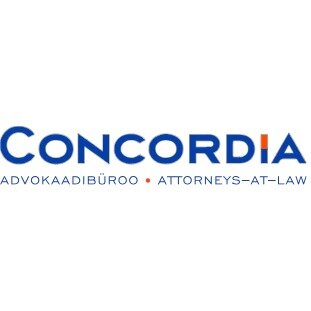Best Energy Regulatory Law Lawyers in Estonia
Share your needs with us, get contacted by law firms.
Free. Takes 2 min.
Or refine your search by selecting a city:
List of the best lawyers in Estonia
About Energy Regulatory Law in Estonia
Energy Regulatory Law in Estonia covers the rules, policies, and enforcement mechanisms governing the production, distribution, transportation, and sale of energy - including electricity, natural gas, and renewable energy sources. Estonia, as a European Union member state, aligns its energy regulations with EU directives while ensuring national energy security, consumer protection, market competition, and sustainable development. The main focus is on ensuring reliable energy supply, fair pricing, integration of renewables, and compliance with environmental standards.
Why You May Need a Lawyer
Several situations may require you to seek legal help in the field of Energy Regulatory Law in Estonia:
- Starting or expanding an energy-related business and navigating licensing requirements
- Handling disputes with energy providers over pricing, service contracts, or supply interruptions
- Dealing with regulatory compliance for renewable energy projects
- Understanding tariffs, grid access rules, or connection obligations
- Participating in public procurement processes involving energy infrastructure
- Concerns regarding environmental regulations and the impact of energy projects
- Facing investigations or enforcement by supervisory authorities
- Seeking compensation for damages related to energy supply or infrastructure
Local Laws Overview
Key energy laws in Estonia include the Electricity Market Act, Natural Gas Act, and District Heating Act, complemented by EU regulations and directives. The Estonian Competition Authority is the main regulator overseeing energy markets, ensuring fair competition, consumer interests, and oversight of pricing and quality standards.
Core features of Estonian Energy Regulatory Law include:
- Mandatory licenses for energy production, transmission, and sale
- Unbundling of energy generation and network services to promote competition
- Support schemes for renewable energy and cogeneration
- Non-discriminatory grid access for all eligible users
- Regulated tariffs for network services and some consumer categories
- Consumer protection mechanisms
- Reporting and transparency requirements for market participants
- Alignment with EU energy and environment objectives
Frequently Asked Questions
What energy market segments are regulated in Estonia?
Estonia regulates electricity, natural gas, and district heating markets. Each sector has specific licensing and oversight requirements, along with unbundling rules and consumer protection frameworks.
Who is responsible for energy market supervision?
The Estonian Competition Authority (Konkurentsiamet) is the regulatory body overseeing electricity, gas, and heating sectors. It issues licenses, enforces regulations, and settles disputes between market participants.
Is it mandatory to have a license to produce or sell electricity?
Yes, most electricity producers and sellers must obtain a license from the Estonian Competition Authority, unless they qualify for certain exemptions (such as small-scale microgenerators).
What support is available for renewable energy projects?
Estonia offers support schemes such as feed-in premiums or auctions for renewable energy producers. These mechanisms aim to promote investments in wind, solar, and biomass energy.
How are energy prices determined?
While wholesale energy prices are largely market-driven, network services and some consumer prices are regulated and approved by the Estonian Competition Authority to ensure fairness.
How can consumers resolve disputes with energy companies?
Consumers may first contact the company directly. If unresolved, they can file a complaint with the Estonian Consumer Protection and Technical Regulatory Authority or the Competition Authority.
Are there environmental obligations for energy companies?
Yes, energy companies must comply with environmental permitting, emissions control, and reporting obligations. This includes impact assessments and compliance with climate targets.
What are the rules for connecting to the grid?
Grid operators must provide non-discriminatory access to eligible users, based on technical standards and capacity. Connection costs and terms are regulated and transparent.
Can foreign investors participate in Estonian energy markets?
Yes, Estonia's energy market is open to foreign investors, subject to the same licensing and regulatory requirements as Estonian entities.
How does Estonia align with EU energy policies?
Estonia implements EU directives on market liberalization, renewable energy targets, and energy efficiency, ensuring harmonization with broader European energy objectives.
Additional Resources
For further guidance, consider these resources related to Energy Regulatory Law in Estonia:
- Estonian Competition Authority - Main regulator for electricity, gas, and heating markets
- Ministry of Economic Affairs and Communications - Responsible for strategic energy policy
- Estonian Consumer Protection and Technical Regulatory Authority - Consumer rights and technical regulation in energy
- Estonian Renewable Energy Association - Advocacy and information on renewable energy
- Legal aid services and law firms specializing in energy law
Next Steps
If you require legal assistance in Energy Regulatory Law:
- Gather all relevant documentation, such as contracts, correspondence, and licenses
- Define the specific issue or question you are facing
- Contact a lawyer or legal firm with expertise in energy law in Estonia
- Consult with the Estonian Competition Authority or relevant governmental bodies for regulatory guidance
- If your issue is related to consumer rights, reach out to the Estonian Consumer Protection and Technical Regulatory Authority
- Consider joining industry associations or attending informational seminars for ongoing guidance
Legal matters in the energy sector can be complex and change as laws evolve. Consulting with a qualified professional ensures your interests are protected and your actions are compliant with current regulations.
Lawzana helps you find the best lawyers and law firms in Estonia through a curated and pre-screened list of qualified legal professionals. Our platform offers rankings and detailed profiles of attorneys and law firms, allowing you to compare based on practice areas, including Energy Regulatory Law, experience, and client feedback.
Each profile includes a description of the firm's areas of practice, client reviews, team members and partners, year of establishment, spoken languages, office locations, contact information, social media presence, and any published articles or resources. Most firms on our platform speak English and are experienced in both local and international legal matters.
Get a quote from top-rated law firms in Estonia — quickly, securely, and without unnecessary hassle.
Disclaimer:
The information provided on this page is for general informational purposes only and does not constitute legal advice. While we strive to ensure the accuracy and relevance of the content, legal information may change over time, and interpretations of the law can vary. You should always consult with a qualified legal professional for advice specific to your situation.
We disclaim all liability for actions taken or not taken based on the content of this page. If you believe any information is incorrect or outdated, please contact us, and we will review and update it where appropriate.
Browse energy regulatory law law firms by city in Estonia
Refine your search by selecting a city.














